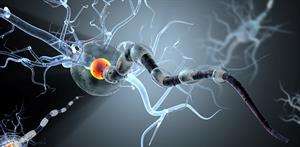A new diet provides hope for treating patients with drug-resistant epilepsy

Scientists from Royal Holloway, University of London and UCL have identified how a specific diet can be used to help treat patients with uncontrolled epilepsy.
The findings, which reveal how the ketogenic diet acts to block seizures in patients with drug-resistant epilepsy, are published today (25 November) in the journal Brain.
Epilepsy affects over 50 million people worldwide and approximately a third of people diagnosed with epilepsy do not have seizures adequately controlled by current treatments.
The research team have identified a specific fatty acid, decanoic acid, provided in the MCT (medium chain triglyceride, a chemical containing three fatty acids) ketogenic diet that has potent anti-epileptic effects. The diet comprises of high levels of fat and low levels of carbohydrate-containing foods.
"By examining the fats provided in the diet, we have identified a specific fatty acid that outperforms drugs currently used for controlling seizures, and that may have fewer side effects," said Professor Robin Williams from the Centre for Biomedical Sciences at the School of Biological Sciences at Royal Holloway.
"This discovery will enable us to develop improved formulations that are now likely to significantly improve the treatment of epilepsy. It will offer a whole new approach to the management of epilepsies in children and adults," added Professor Matthew Walker from UCL's Institute of Neurology.
"Finding that the therapeutic mechanism of the diet is likely to be through the fat, rather than widely accepted by generation of ketones, may enable us to develop improved diets, and suggests we should re-name the diet simply 'the MCT diet'" said Professor Williams.
Professor Walker is supported by the National Institute for Health Research University College London Hospitals Biomedical Research Centre.
The research is funded by the National Centre for the Replacement, Refinement and Reduction of Animals in Research (NC3Rs), who support projects with a potential to minimise the use of animals in research, and by Vitaflo international Ltd, who are committed to developing improved treatments for people with drug resistant epilepsy. The project builds on work in which most of the animal use in epilepsy research has been replaced by the simple amoeba to initially screen and identify improved treatments.
More information: Seizure control by decanoic acid through direct AMPA receptor inhibition. Pishan Chang, Katrin Augustin, Kim Boddum, Sophie Williams, Min Sun, John A. Terschak, Jörg D. Hardege, Philip E. Chen, Matthew C. Walker, Robin S. B. Williams. Brain Nov 2015, DOI: 10.1093/brain/awv325














